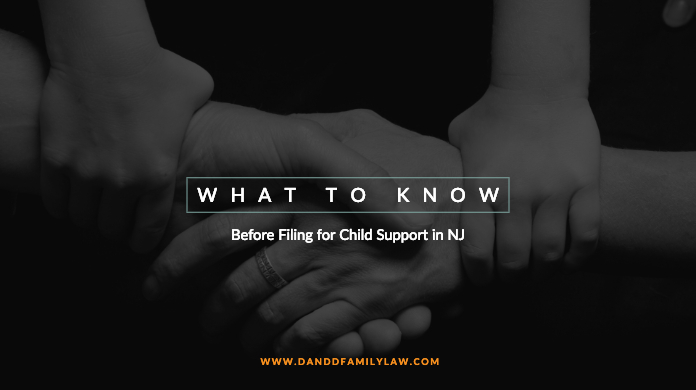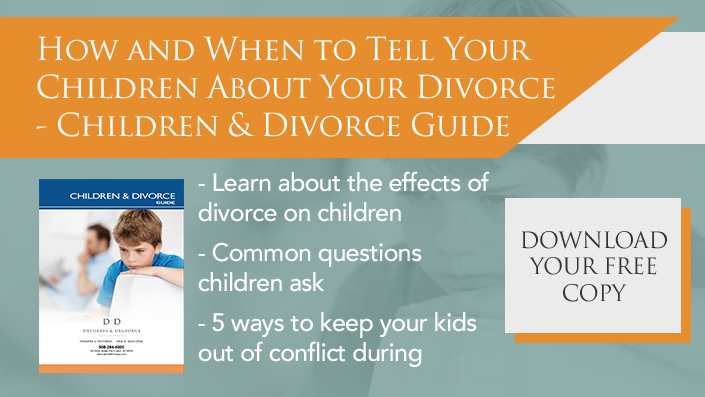 Filing for divorce often involves many moving parts, but one of the issues that most parents are typically concerned about is child support. How much will I get? How much will I have to pay? How long will NJ child support last? A better understanding of NJ child-support laws will make you feel more empowered and set your mind at ease as you navigate this emotional process. Here’s what you should know before filing for child support in NJ…
Filing for divorce often involves many moving parts, but one of the issues that most parents are typically concerned about is child support. How much will I get? How much will I have to pay? How long will NJ child support last? A better understanding of NJ child-support laws will make you feel more empowered and set your mind at ease as you navigate this emotional process. Here’s what you should know before filing for child support in NJ…
Alimony and child support are not the same
This first point to understand is that alimony and child support are not the same thing—they are two very different forms of financial support. Many people have the misconception that they are both simply financial support and are therefore one and the same. It’s important to know the differences, however, so you know what your financial picture may look like at the conclusion of your divorce.
Alimony is tax-deductible to the payor, but child support is not
For parties who are divorced prior to December 31, 2018, the person who is paying alimony is entitled to deduct the amount of alimony they pay on their tax returns, and the person who is receiving alimony is required to report that alimony as income on their tax return. Under the new tax law, however, this will not be the case for anyone divorced in 2019 and thereafter. In anticipation of this change in the tax code, practitioners believe that the best way to handle it moving forward will be to tax effect all alimony obligations upfront so that the parties are essentially in the same position they would be under the prior law.
Child support is calculated per the Guidelines, but alimony is not a set formula
NJ child support is calculated pursuant to the New Jersey Child Support Guidelines, which is a computer program that allows attorneys to enter the weekly amount of each party’s gross income, as well as any alimony that is paid or received. The program applies taxes and also considers the number of overnights that the noncustodial parent has with the children, the payment of health-insurance premiums, and the number and ages of the children. From there, the guidelines will provide the appropriate amount of NJ child support.
Many people assume that alimony is figured via a similar calculation or that there is a set formula that is applied to a case, but alimony in New Jersey is based on a number of factors. The overarching consideration is one party’s needs versus the other party’s ability to pay to cover the shortfall to those needs. It is a very fact-sensitive analysis and is essentially exactly the opposite of the formula-based child-support guidelines.
Alimony terminates at a set point in time
For marriages that spanned less than 20 years in length, parties generally agree to a limited-duration time period for the payment of alimony. Alimony in those cases will usually terminate upon the expiration of that time frame, the death of either party, the remarriage of the party receiving alimony, or in some cases, the cohabitation of the party receiving alimony.
Child support and emancipation
Most people assume NJ child support ends at age 18. But NJ child-support laws about emancipation are more complicated than this. While many children are emancipated when they turn 18 or when they finish high school or begin college, in today’s financial climate, more and more children aren’t actually emancipated as a hard-and-fast rule at age 18.
Emancipation occurs when a child lives independently, outside the custody, control, and support of his or her parents. For some children, going away to college is not emancipation, since they may continue to be financially dependent on their parents. Likewise, living at home and having a job does not necessarily make someone emancipated since they are still dependent on their parents.
Events that can trigger emancipation include joining the military, getting married, or moving out and becoming self-supporting. In New Jersey, you need a court to decide whether your child has become emancipated to end child support for this reason. The courts consider the following factors when deciding if emancipation has occurred:
- The child’s needs
- The child’s resources
- The family’s financial resources
- The child’s best interest
Emancipation is a complicated child-support issue and one that should be discussed in-depth with your attorney, so you can understand all the nuances of NJ child-support law.
If you have questions or concerns about NJ child-support laws and filing for child support in NJ, talk to the attorneys at DeTorres & DeGeorge.


 START LIVE CHAT
START LIVE CHAT










